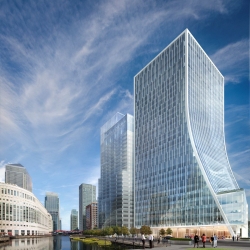To provide the best experiences, we use technologies like cookies to store and/or access device information. Consenting to these technologies will allow us to process data such as browsing behaviour or unique IDs on this site. Not consenting or withdrawing consent, may adversely affect certain features and functions.
The technical storage or access is strictly necessary for the legitimate purpose of enabling the use of a specific service explicitly requested by the subscriber or user, or for the sole purpose of carrying out the transmission of a communication over an electronic communications network.
The technical storage or access is necessary for the legitimate purpose of storing preferences that are not requested by the subscriber or user.
The technical storage or access that is used exclusively for statistical purposes.
The technical storage or access that is used exclusively for anonymous statistical purposes. Without a subpoena, voluntary compliance on the part of your Internet Service Provider, or additional records from a third party, information stored or retrieved for this purpose alone cannot usually be used to identify you.
The technical storage or access is required to create user profiles to send advertising, or to track the user on a website or across several websites for similar marketing purposes.
 Artificial intelligence (AI) and emerging technologies such as virtual personal assistants and chatbots will replace 69 percent of managers’ workload by 2024, Gartner, Inc. has predicted. As well as taking over routine tasks, AI will also make work more accessible for employees with disabilities, a new report from the research and advisory company claims (registration required). More →
Artificial intelligence (AI) and emerging technologies such as virtual personal assistants and chatbots will replace 69 percent of managers’ workload by 2024, Gartner, Inc. has predicted. As well as taking over routine tasks, AI will also make work more accessible for employees with disabilities, a new report from the research and advisory company claims (registration required). More →






 Most executives around the world are out of touch with what it takes to lead effectively and for their businesses to stay competitive in the digital economy, a new
Most executives around the world are out of touch with what it takes to lead effectively and for their businesses to stay competitive in the digital economy, a new 
 Four in 10 workers around the world are concerned about their health but don’t want to go to the doctor, a new research report has claimed. Although 40% of workers said they are worried about their long-term health, the same number hadn’t had a health check in the last year and most have no idea about basic indicators such as what their cholesterol level or body fat is. Inflexible and long working hours are compounding the problem, the report by
Four in 10 workers around the world are concerned about their health but don’t want to go to the doctor, a new research report has claimed. Although 40% of workers said they are worried about their long-term health, the same number hadn’t had a health check in the last year and most have no idea about basic indicators such as what their cholesterol level or body fat is. Inflexible and long working hours are compounding the problem, the report by 


 Younger decision makers are increasingly relying on technology such as emails, video conferencing and WhatsApp in negotiations with suppliers, rather than speaking to them face-to-face, new research from
Younger decision makers are increasingly relying on technology such as emails, video conferencing and WhatsApp in negotiations with suppliers, rather than speaking to them face-to-face, new research from 





















January 21, 2020
The vaguery of workplace serendipity
by Neil Usher • Comment, Facilities management, Technology, Workplace design